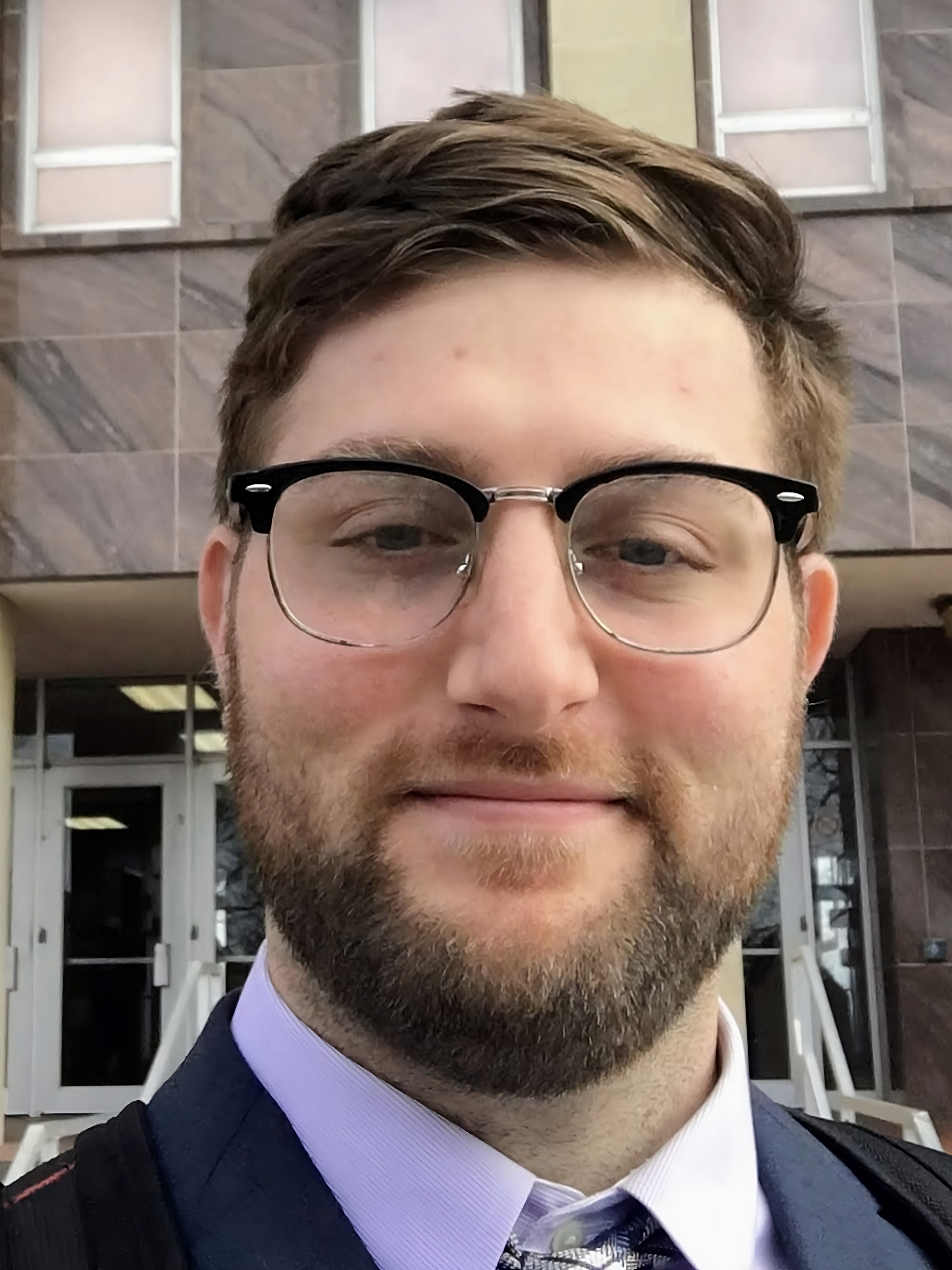Dr. Zachary J. Roman
|
|
Dr. Zachary J. Roman Postdoctoral Researcher Social Computing Group E-Mail: zacharyjoseph.roman@uzh.ch |
Short Biography
Zachary joined the Social Computing Group as a postdoctoral researcher in May 2023. Prior to joining the team, Zachary was a postdoctoral researcher for the laboratory of Psychological Methods, Evaluation, and Statistics at the University of Zurich.
In January 2020, Zachary received his Ph.D. in quantitative psychology (doctoral minor in computer science) from the University of Kansas, advised by professor Holger Brandt, defending his dissertation titled "Auto-regressive latent variable modeling: A general framework for Bayesian spatial structural equation models".
Zachary holds a M.Sc. in quantitative psychology from Illinois State University, and a B.A. in psychology from Ohio University. During his Ph.D. studies Zachary worked for the Center for Research Methods and Data Analysis (CRMDA) where he utilized "Big Data" computing and statistics skills for corporate and university research projects.
Research Interests
Zachary's research spans methodology and applied social research. Zachary emphasizes developing novel statistical approaches to gain unique insights into human behavior both at the societal level and smaller scale settings. Specifically, he develops approaches, which can account for complex interactions between cases in a statistical analysis. For example, approaches which can account for situations when participants interact with one another (e.g., social media interaction, members of a sports team, or any group of socially engaged individuals). Within this domain, Zachary is also interested in how space-time interactions in methodological approaches can be utilized together for unique insights (e.g., disease spillover, political belief permeation across space.).
In applied settings, Zachary is interested in how the acceptability of prejudice towards social groups changes over time, the expression of these prejudices, and what leads to prejudice expression changes. Zachary is interested in applying the novel methodological approaches he develops towards investigating these prejudice based research questions.
Recent Publications
- Roman, Z. J., Schmidt, P., Miller, J. M., & Brandt, H. (2023, February 27). Identifying dynamic shifts to non-compliant behavior in questionnaire responses; A novel approach and experimental validation. Retrieved from psyarxiv.com/ydgqz [Pre-print available, under review]
- Homan, S.*, Roman, Z. J.*, [and 18 others] (2022). Identifying distinct subgroups of suicidal ideations: A pre-registered ecological momentary assessment study in psychiatric patients. 10.31234/osf.io/vt8uf (*shared first authorship) [Pre-print available, under review]
- Roman, Z. J., Brandt, H., & Miller, J. M. (2022). Automated bot detection using Bayesian latent class models in online surveys. Frontiers in Psychology, 1947. https://doi.org/10.3389/fpsyg.2022.789223
- Bachmann D., Roman, Z. J., [and 12 others], (2022). Lifestyle affects amyloid burden and cognition differently in men and women. Annals of Neurology. https://doi.org/10.1002/ana.26417
- Roman, Z. J. & Brandt, H. (2021). A latent auto-regressive approach for Bayesian structural equation modeling of spatially or socially dependent data. Multivariate Behavioral Research, 1-25. https://doi.org/10.1080/00273171.2021.1957663
- Ho, A. T., Roman, Z. J., & Wu, M. Y. (2021), Big Data Applications: Exploratory data analytics of public safety concerns. In Welch, E., (Ed.) Electronic Government Research Handbook. IGI Global. https://doi.org/10.4337/9781786437259
Teaching
- Fall 2023: Multi-level models for longitudinal data (MLM; Psychology)
- Spring 2023: Structural Equation Models (SEM; Psychology)
Open Projects
- Latent social network-autoregressive applications to social media settings
- Space-time interactions of opinion expression in social media settings
See the full list of availabe projects at our group here.
